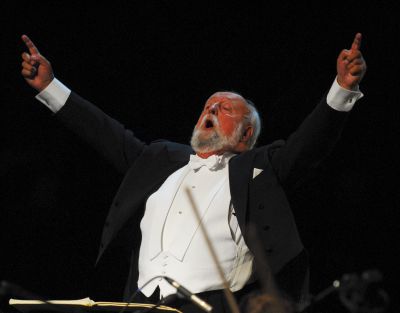Bronisław Huberman: From child prodigy to resistance fighter against National Socialism

In the neighbouring countries, more Jewish musicians felt ready to emigrate because of the growing anti-Semitism, the difficult economic conditions and the increased intimidation and threat of war emanating from Germany. In Warsaw, Huberman, helped by the leader of the second violin section, Jacob Surowicz, had prepared the auditions for members of the philharmonic orchestra there. In the end, he hired the violinists Mieczysław Fliederbaum, who emigrated to Palestine with his wife and son, the cellist Chaim Bodenstein with his wife, the brothers Alfred, Bolesław and Bronisław Ginsberg, who played violin, cello and timpani, with their families, their father the viola player Pesach Ginsberg (Ginzburg) and his wife, the trombonist Michał Podemski with his family, the viola player Marek Rak and his wife, the violinist Moszek Styglitz with his wife who lived in Belgium and the bassoonist Leon Szulc and his cousin, the horn player Bronisław Szulc,[46] as well as Surowicz himself with his family.[47] Some musicians did not meet Huberman’s quality standards and countless others turned to him for help. For these people, Huberman's international connections helped him organise their emigration to other countries, such as England.
By summer 1936, Huberman had hired more than fifty musicians from Poland, Austria, Germany, the Netherlands, Czechoslovakia, Hungary, the Baltic States and Italy and had managed to help them and their families emigrate to Palestine. British and Jewish personalities in Tel Aviv took care of the difficult business of obtaining immigration certificates, a task which had been made more difficult by the start of the Arab revolt in April 1936 and the partitioning of Palestine by the British mandatory power. Even the Jewish Agency, the public representative of the Jews in Palestine which was responsible for the immigration permits, and the Zionist administration in Jerusalem expressed a number of concerns because the “Huberman musicians” were taking jobs away from colleagues who based in Palestine. On top of this, the immigration certificates were, in principle, reserved for agricultural workers and tradespeople who were to play their part in building a Jewish Palestine.[48] Huberman also took musicians from the previous orchestra in Tel Aviv and welcomed them into the new Palestine Orchestra which, in the end, had seventy-three members.
[46] Compare the biography of Bronisław Szulc in this portal, https://www.porta-polonica.de/de/lexikon/szulc-bronislaw
[47] Von der Lühe 1998 (see Literature), page 100
[48] Von der Lühe 1993 (see Literature), page 1048












